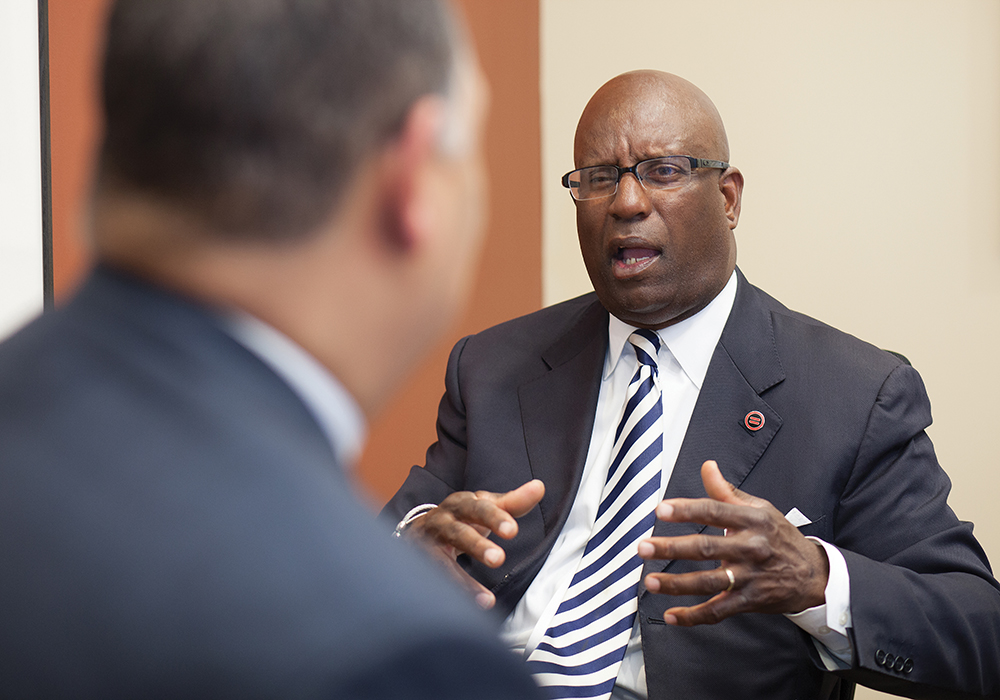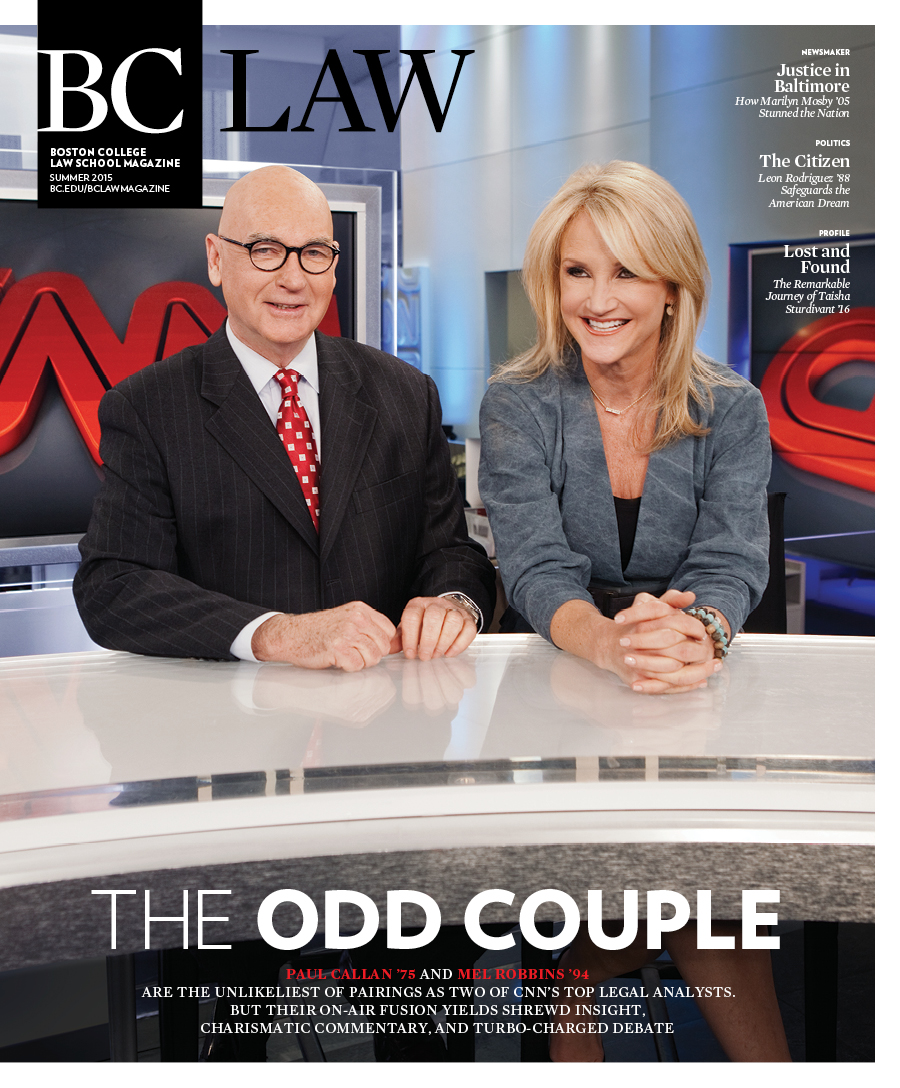The following are edited excerpts from a conversation between Dean Vincent Rougeau and Darnell L. Williams, CEO of the Urban League of Eastern Massachusetts, a nonprofit organization that provides programs and services in education, career and personal development, and employment for African Americans and other residents of color. He was formerly president of the Springfield Branch of the National Association for the Advancement of Colored People.
VR: I don’t think it’s audacious to hope that the US will become a post-racial society one day. However, I think it’s audacious to hope that race will go away as an issue. This society is so bound up in the concept of race that we have to learn to “own” our racial history in a much more honest way. But we’ve got a lot of hurdles to get over. There are still racial stereotypes, differences, and inequalities. We need to have open and honest conversations about race, including talks about the bad things. And then we can move forward from a position of honesty and reality.
“It’s wrong to think we’ve become a post-racial society. There have been too many incidents that have popped up that remind us that we’re not there yet.” —Darnell Williams
DW: We’ve now elected a black president twice. I never thought I’d see that in my lifetime. And we’ve elected a black governor here in Massachusetts. These were symbolic and inspirational elections. But it’s wrong to think we’ve become a post-racial society. There have been too many incidents that have popped up recently involving racism, poverty, and immigration that remind us that we’re not there yet. Particularly in the urban centers where I’ve served, those issues are closely bound.
VR: I feel very strongly about the current anti-immigrant sentiment in the US. This country has a long history of welcoming strangers. The very idea that we have this anti-immigrant movement now [that disseminates] half-truths, untruths, and fears is disappointing.
DW: Immigrants have added significant vitality to the US. They pay taxes, they drive taxis, and they clean hospital beds. They do many of the jobs African Americans were doing years go. Among the people I serve, immigration is being talked about at kitchen tables and restaurants because they are not immune to it. Many African Americans or Caribbean Americans are affected by the immigration laws. They have family members in Africa, or Haiti, or the Dominican Republic who can’t come here. It is fundamentally and morally wrong to separate children from their parents who have lived in the US five or more years.
It is important to speak out about these gridlock issues. Native Americans say it best: If people are against immigrants, when is everybody leaving?
VR: The changes brought by immigrants, for the most part, have been a source of revitalization and rejuvenation in this country. Immigration is a strength and a part of our history that we are proud of. Or are we going to live in fear once again—fear of differences, fear of the other? It is important to understand that when there is only one image of what it means to be American, many people are harmed and the country suffers. For people of color, it is particularly important to speak out in favor of diversity. The same can be said of England. I have done work in London researching racial and economic disparities as they pertain to immigrant communities. We approached the big banks and talked to them about the people who were cleaning their offices at night. We had conversations with the bankers about paying these people a living wage.
Boston and London have a lot in common: They are economically vibrant cities with significant immigrant populations. By partnering with large employers and other key economic actors, you can start to bring low-wage workers out of the shadows.
DW: Boston and London are also two cities where there is a striking contrast of wealth on one end and stark poverty on the other. The people at the bottom of the well, as Harvard Law professor Derrick Bell called them [in his book Faces at the Bottom of the Well], are struggling to make ends meet. They take two buses to get to work. There’s little time at the end of the day to sit at the dinner table and talk to their kids about school. Their situation prevents them from saving for a rainy day. For them, every day is a rainy day. The challenge is how do we redistribute the wealth so that they can have a good lifestyle and save for their children’s education?
VR: In London the movement to raise their wages went a long way to alleviate the suffering and help people meet their needs in a dignified way so that they could start participating in society: voting, going to school board meetings and teacher conferences. It was a lesson that started in the US labor and civil rights movements. But I don’t know if we’ve used it effectively in recent years in the debate over shared economic and social needs.
DW: I am a prisoner of hope that someday we will become a better society.



